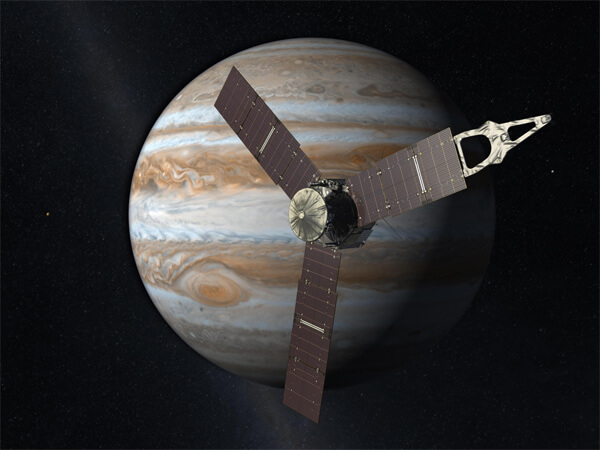Launched in 2011, Juno becomes the second probe to orbit the gas giant, the first being Galileo in 1995. It is equipped with a camera, infrared and microwave radiometers, particle detectors, and an ultraviolet spectrometer. The mission objectives are:
- Determine precisely how much water is in Jupiter's atmosphere, to help confirm which planet formation theory is correct (or if new theories are needed).
- Look deep into Jupiter's atmosphere to gain a better understanding of its composition, cloud motions, temperature and other properties.
- Map Jupiter's magnetic and gravity fields – revealing its deep structure, core mass and overall dynamics, helping to further explain the planet's origin.
- Explore and study Jupiter's magnetosphere near the poles, especially the auroras – Jupiter's northern and southern lights – providing new insights into how the planet's enormous magnetic field affects its atmosphere.
Juno arrives at the planet in July 2016 and its mission concludes in October 2017, after a total of 33 orbits.* Like its predecessor, Galileo, it is crashed into the outer atmosphere of the gas giant, where it compresses and then melts as it falls.


0 comments for "The Juno probe arrives at Jupiter"
Post a Comment